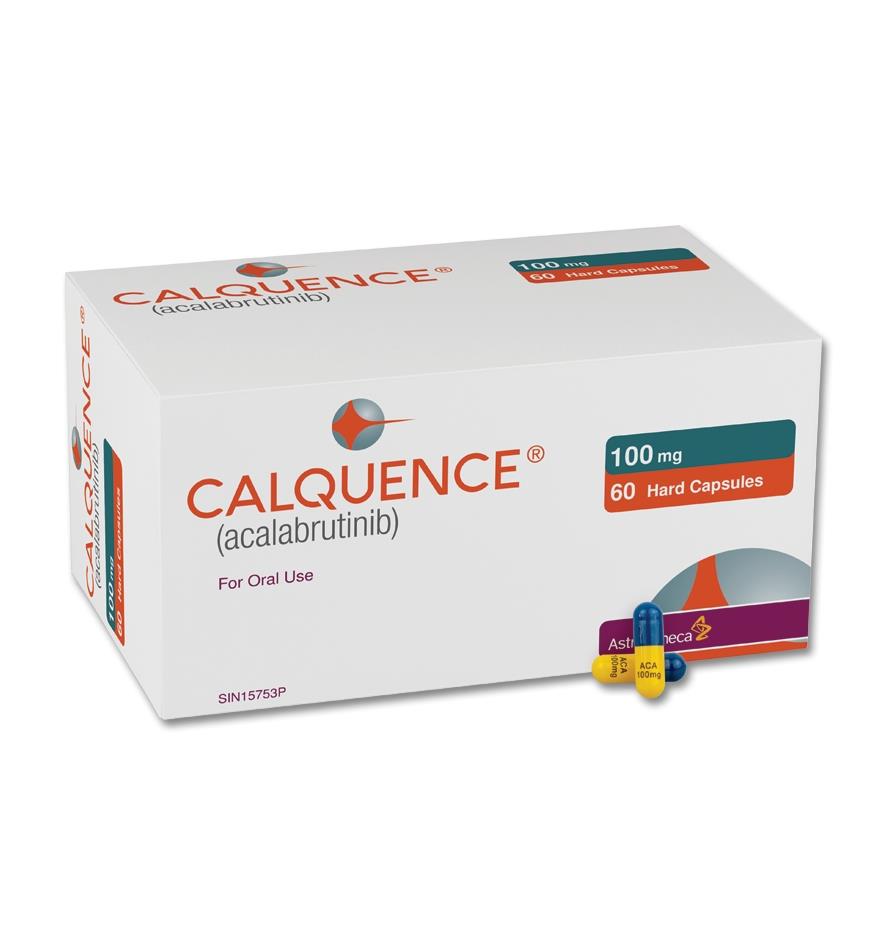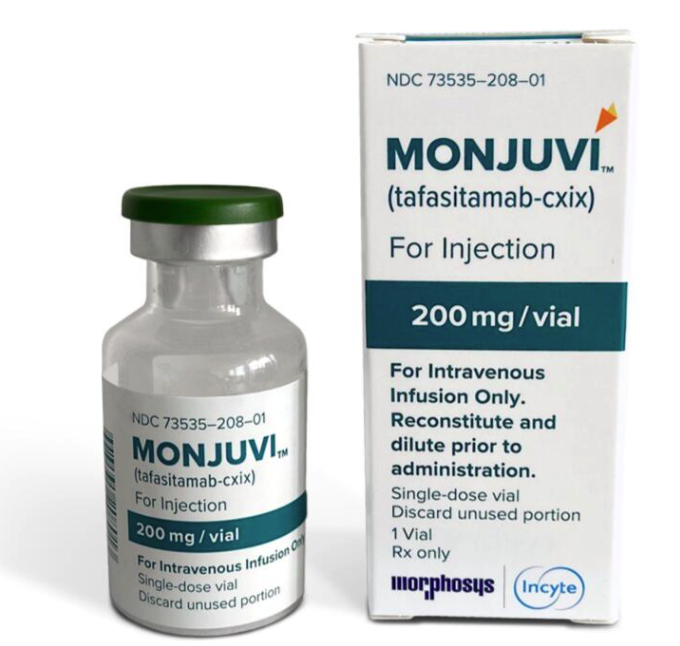Calquence (acalabrutinib) vs Monjuvi (tafasitamab-cxix)
Calquence (acalabrutinib) vs Monjuvi (tafasitamab-cxix)
Calquence (acalabrutinib) is a Bruton's tyrosine kinase (BTK) inhibitor primarily used in the treatment of certain types of B-cell malignancies, such as chronic lymphocytic leukemia (CLL) and mantle cell lymphoma (MCL). Monjuvi (tafasitamab-cxix), on the other hand, is a CD19-directed cytolytic antibody indicated for the treatment of adult patients with relapsed or refractory diffuse large B-cell lymphoma (DLBCL), in combination with lenalidomide. The choice between Calquence and Monjuvi would depend on the specific type of blood cancer a patient has, as well as their individual medical history, treatment goals, and the recommendation of their healthcare provider.
Difference between Calquence and Monjuvi
| Metric | Calquence (acalabrutinib) | Monjuvi (tafasitamab-cxix) |
|---|---|---|
| Generic name | Acalabrutinib | Tafasitamab-cxix |
| Indications | Chronic lymphocytic leukemia, Small lymphocytic lymphoma, Mantle cell lymphoma | Relapsed or refractory diffuse large B-cell lymphoma |
| Mechanism of action | Bruton's tyrosine kinase (BTK) inhibitor | CD19-directed cytolytic antibody |
| Brand names | Calquence | Monjuvi |
| Administrative route | Oral | Intravenous |
| Side effects | Headache, diarrhea, muscle pain, bruising, fatigue, anemia | Infusion reactions, fatigue, neutropenia, anemia, diarrhea, thrombocytopenia |
| Contraindications | Hypersensitivity to acalabrutinib or its excipients | Hypersensitivity to tafasitamab or its excipients |
| Drug class | Kinase inhibitor | Monoclonal antibody |
| Manufacturer | AstraZeneca | MorphoSys and Incyte |
Efficacy
Efficacy of Calquence (Acalabrutinib) in Treating Lymphoma
Calquence, also known by its generic name acalabrutinib, is a medication primarily used in the treatment of certain types of lymphoma, specifically mantle cell lymphoma (MCL) in adults who have received at least one prior therapy. Acalabrutinib is a Bruton's tyrosine kinase (BTK) inhibitor that works by blocking BTK, a key molecule in the B cell receptor signaling complex that plays an important role in the survival and proliferation of malignant B cells. Clinical trials have demonstrated that acalabrutinib has significant efficacy in inducing remission in patients with relapsed or refractory MCL. The response rates have been encouraging, with a substantial proportion of patients achieving partial or complete responses, leading to its approval by regulatory agencies for this indication.
Efficacy of Monjuvi (Tafasitamab-cxix) in Treating Lymphoma
Monjuvi, with the generic name tafasitamab-cxix, is an anti-CD19 monoclonal antibody used in combination with lenalidomide for the treatment of adult patients with relapsed or refractory diffuse large B-cell lymphoma (DLBCL) who are not eligible for autologous stem cell transplant (ASCT). Tafasitamab-cxix targets the CD19 antigen on the surface of pre-B and mature B lymphocytes and lymphoma cells, leading to cell death. Clinical studies have shown that this combination therapy can lead to improved outcomes in terms of overall response rate and progression-free survival in patients with DLBCL. The efficacy of tafasitamab-cxix in combination with lenalidomide has been recognized by the approval of this treatment regimen for the specified patient population.
Comparative Efficacy in Lymphoma Treatment
When comparing the efficacy of Calquence and Monjuvi, it is important to note that they are used for different subtypes of lymphoma and are not directly comparable. Acalabrutinib is used for MCL after other treatments have failed, while tafasitamab-cxix in combination with lenalidomide is used for DLBCL in patients who are not candidates for ASCT. Each medication has shown efficacy in its respective indication, with acalabrutinib being effective in MCL and tafasitamab-cxix with lenalidomide showing promise in DLBCL. The choice of treatment depends on the specific type of lymphoma, the stage of the disease, previous treatments, and the overall health of the patient.
Considerations for Off-Label Use
While Calquence and Monjuvi have demonstrated efficacy in their approved indications, there may be interest in their off-label use for other types of lymphoma or in different combinations. Off-label use refers to the use of a medication for an indication or in a manner not explicitly approved by regulatory agencies. Such use should be based on scientific evidence, expert consensus, or case reports that suggest potential benefit. However, it is crucial for healthcare providers to weigh the potential risks and benefits and to discuss these with patients when considering off-label treatment options. Any off-label use should be approached with caution and under the guidance of a healthcare professional experienced in treating lymphoma.
Regulatory Agency Approvals
Calquence
-
European Medical Agency (EMA), European Union

-
Food and Drug Administration (FDA), USA

-
Health Canada

-
Pharmaceuticals and Medical Devices Agency (PMDA), Japan

-
Therapeutic Goods Administration (TGA), Australia

Monjuvi
-
Food and Drug Administration (FDA), USA

Access Calquence or Monjuvi today
If Calquence or Monjuvi are not approved or available in your country (e.g. due to supply issues), you can access them via Everyone.org.
How it works

Make an enquiry
Choose the medicine you want to buy, answer a couple of questions, and upload your prescription to speed things up. We’ll get back to you within 24 hours.


Make an enquiry
Choose the medicine you want to buy, answer a couple of questions, and upload your prescription to speed things up. We’ll get back to you within 24 hours.


Breeze through the paperwork
We'll guide you through the required documents for importing unapproved medicine, ensuring you have all the necessary information.


Get a personalized quote
We’ll prepare a quote for you, including medicine costs and any shipping, administrative, or import fees that may apply.


Receive your medicine
Accept the quote and we’ll handle the rest - sourcing and safely delivering your medicine.

Some text on this page has been automatically generated. Speak to your physician before you start a new treatment or medication.
Let's talk
If you have any questions, call us or send us a message through WhatsApp or email:
Contact us




